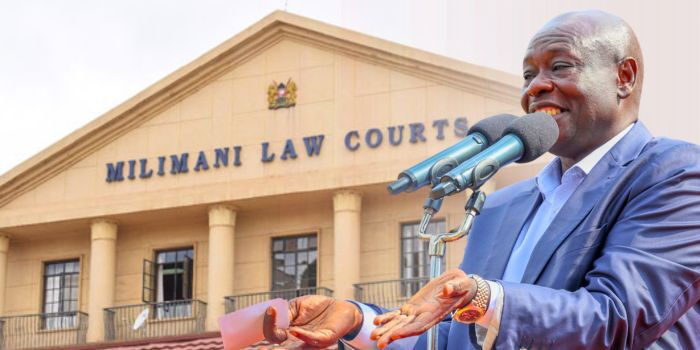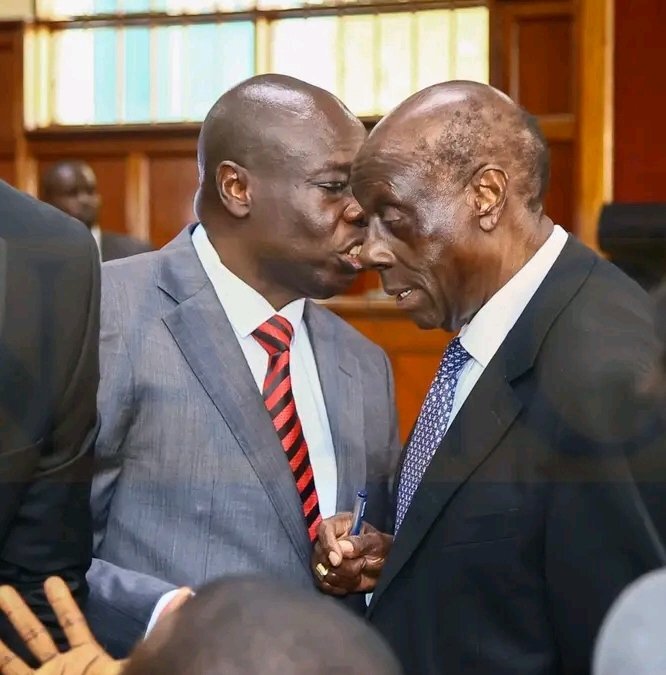
1. Ruling on Conservatory Orders
At the heart of today’s proceedings is the ruling on conservatory orders that currently prevent Interior Cabinet Secretary Kithure Kindiki from being sworn in as deputy president.
The three-judge bench, comprising Judges Eric Ogola, Antony Mrima, and Freda Mugambi, will decide whether to lift or extend these orders, with the ruling scheduled for 2:30 pm.
This decision will be crucial in determining the next steps in Gachagua’s impeachment and the potential swearing-in of Kindiki.
2. Debate on Constitutional Supremacy
Gachagua’s legal team, led by Senior Counsel Paul Muite and John Khaminwa, is expected to emphasize that the Kenyan Constitution is supreme and central to the protection of citizens’ rights.

They argue that the impeachment process violated constitutional principles, especially by proceeding without a hearing in the Senate.
They will likely reiterate the argument that Kenya is a constitutional democracy, demanding adherence to constitutional procedures in any impeachment.
3. Public Involvement in Kindiki’s Nomination
Another key argument from Gachagua’s defense is the lack of public participation in Kindiki’s nomination for deputy president.
His legal team contends that Kenyans were not sufficiently involved in the process, which they say undermines the democratic foundation of the nation.
This issue is expected to be a significant point in court as they argue against Kindiki’s appointment without public input.
4. Arguments on Fair Hearing and Senate Procedure
Gachagua’s lawyers will argue that he was “condemned unheard” in the Senate, meaning he was not given an opportunity to defend himself during the impeachment proceedings.

They will assert that the impeachment process in the Senate lacked fairness and procedural justice, violating Gachagua’s rights to a fair hearing under the Constitution.
This argument will likely be scrutinized by the bench as they assess the legitimacy of the impeachment process.
5. Judicial Interpretation of Kenya’s Democratic Structure
The court is expected to weigh arguments about Kenya’s democratic framework.
Gachagua’s team contends that Kenya is neither a presidential nor a legislative democracy but a constitutional democracy.
They argue that the impeachment process disregarded this framework, leading to today’s conservatory orders.
This interpretation could guide the court’s final decision on whether the Constitution was violated and how Kenya’s democratic principles should be safeguarded.
Today’s ruling will impact both Gachagua’s political future and the application of constitutional standards in Kenya’s political sphere.
All eyes are on the court as these issues are debated and a decision is made that could set a significant precedent.
Related:
Kipkorir to Gachagua: Drop The Court Cases, Pledge Unswerving Loyalty to Ruto And Kindiki Or Govt Will Frustrate You

Leave a Reply